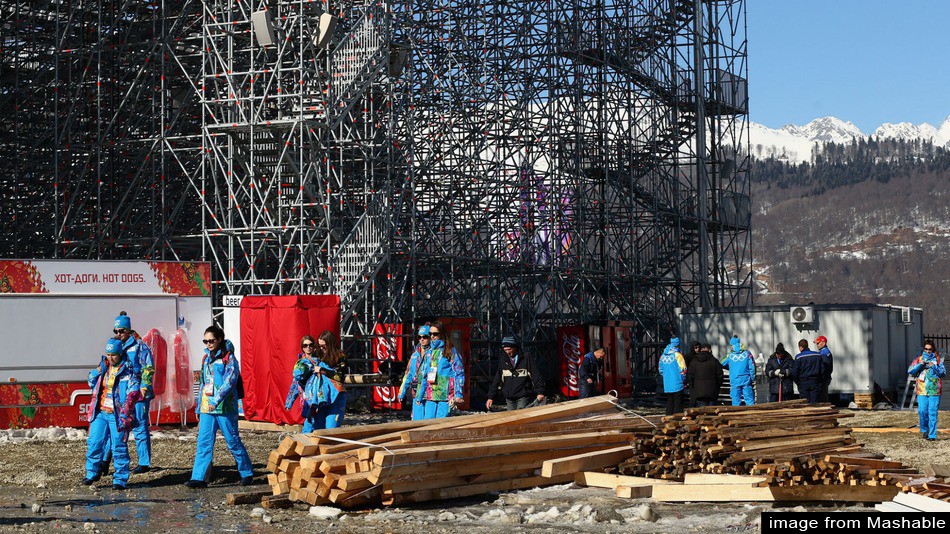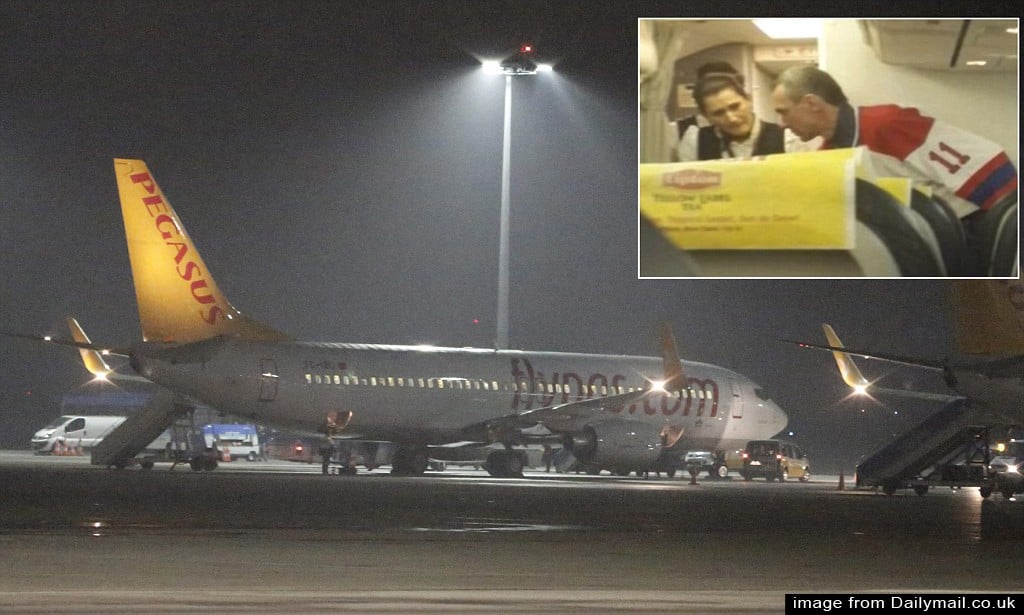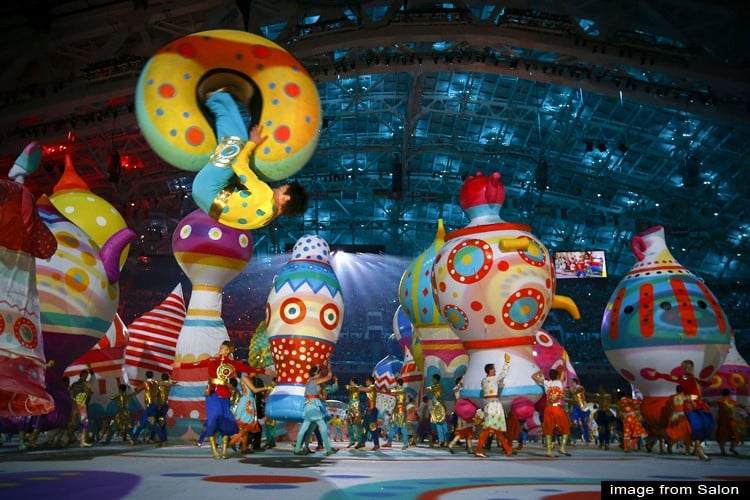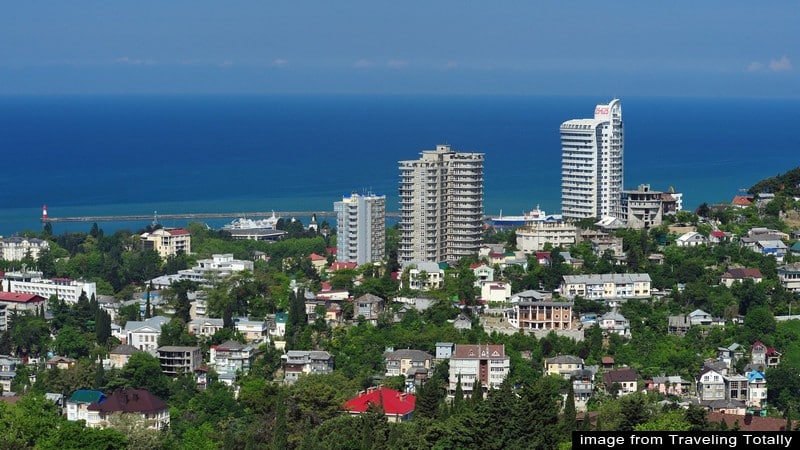The XXII Olympic Winter Games are underway once again, this time in the subtropical region of Sochi, Russia. Putin’s government has invested heavily in the city on the Black Sea, preparing it for the attention of the entire world. A record-breaking 88 countries have qualified to compete and 12 new sports will be debuting in the Winter Games.
But the negative image many Americans associate with Russia has hardly disappeared, even more than 20 years after the Cold War. Just think of all the Russian Reversal jokes out there along the lines of “In Soviet Russia, law breaks you!”
Unfortunately, the 2014 Sochi Olympics did little to alleviate this image at first. In fact, it seemed to provide an incredible source of material for poking fun at Russian infrastructure and government corruption. Mass media outlets, including the BBC, have stamped the bill for these Olympic events at $50 billion. For such a massive number, one would expect a glimmering and flawless Sochi.
This wasn’t entirely the case. The trending news around Sochi up to the opening ceremony painted a not-so-pretty picture of the preparations. Journalists tweeted about abominable hotel conditions for the press. They uploaded pictures of unfinished sidewalks and construction around the city. Awkward restroom arrangements left many wondering how they were going to make it through the next few days. Allegations of corruption by Russian opposition leaders arose as early as last year, according to an article by the BBC. The incongruity between this grotesquely massive budget and such incomplete and inadequate results has left many skeptical of the $50 billion budget. An article in the Washington Post doubts the legitimacy of the figure.
Add to this major concern of terrorist threats. The city of Sochi finds itself in close proximity to the turbulent North Caucasus region, where the militant jihadist group Caucasus Emirate operates and hopes to create an autonomous Islamic state. A video was released online in mid-2013 that appears to show the group’s leader, Doku Umarov, urging his followers to disrupt the Sochi Olympics by any means necessary. Chechen leader Ramzan Kadyrov announced in January 2014 that Umarov had been killed, though this information is not yet fully verified.
In answer to Umarov’s bidding, a Ukrainian man attempted to hijack a plane destined for Turkey from the Ukraine on February 7th, the day of the opening ceremony. He told the pilots he had explosives and instructed them to fly to Sochi. The pilots managed to land safely in Istanbul where the man was arrested, but the attempt was enough to raise the anxiety levels of Olympic spectators.
On top of this, gay rights are a huge issue in Russia right now. Legislation was recently passed prohibiting gay “propaganda,” which vaguely means that the idea of homosexuality cannot be presented around minors. This is especially controversial during the Olympics because the Olympic Committee strictly prohibits any sort of political demonstration by athletes during the games. Think back to the 1968 games in Mexico City, where athletes Tommie Smith and John Carlos had their medals stripped away after raising their fists in solidarity with the black power movement. Athletes in Sochi are faced with this dilemma in relation to gay rights.
And then there were the dogs. A pest control company had been contracted to exterminate thousands of stray dogs roaming around Sochi and surrounding areas. The animal-loving world was in outrage. Local volunteers managed to save many dogs and bring them to shelters, but they now need people to adopt the critters.
You can give journalists crappy hotel rooms. You can bar gays from public demonstration. But don’t you dare hurt any puppies. The world won’t stand for it.
These issues, among others, are what block Russia’s hope to be seen by the rest of the world as an advanced and fully developed nation. Using the Olympics as his venue, President Vladimir Putin is eager to show how Russia has progressed since the demise of the Soviet Union.
And as much as media and reporters buzzed about all these problems leading up to the games, the discussion has mostly moved passed them in light of a successful Opening Ceremony and smoothly ran events. Of course, many jumped at the opportunity to ridicule the opening ceremonies when one of the five rings failed to light up in an illuminated Olympic symbol. But let’s be real. That was a minute detail in an event with over 3,000 performers lasting nearly 3 hours, presenting an abridged version of Russian history (leaving out the really nasty bits, in good taste of course…). By all accounts, it was an incredible show, with some amazing photos to prove it. The 37,000 security personnel quelled the terrorist threat enough for participants to focus on the games and not worry about other issues.
Part of what has drawn focus away from the Russian government’s faults in the media is also the incredible performance by some of the athletes. If you haven’t seen the Russian 15-year old Julia Lipnitskaia’s Gold-medal winning performance for figure skating, do it now. It’s breathtaking. Russia has managed to push itself into having the highest medal count along with the Netherlands, a huge source of excitement for Russian citizens. The German team is dominating with the most Gold medals, already at 7.
Whether Putin’s efforts will succeed in creating a more positive image of Russia for the rest of the world is not certain. At the very least, the hosting of the Olympics in Sochi has drawn attention to the economic disparity prevalent in the host country. In an article for Yahoo Sports, Dan Wetzel comments on the prevalence of tall sheet-metal fences around the city. He claims that the fences serve to block from view the decrepit and impoverished communities that underlie the façade of Olympic grandeur. Whether this aspect of Sochi will ever be redeemed depends on the future success of tourism.
Fortunately, the future of Sochi as a tourist destination seems quite probable. Along with the construction completed for the 2014 Winter Olympics, the city also saw the creation of a Formula 1 Grand Prix Racetrack and will be hosting one race of the circuit in October 2014. The 2018 FIFA World Cup, arguably a bigger and more viewed sporting event than the Olympics, will also be held in the city. Sochi’s success as a tourist destination seems likely in light of these bookings, at the very least during the events themselves.
A change in national image is going to take a lot more than throwing money at construction projects in hopes of awing the world. Regardless, the Olympics have a valuable effect on their host countries. They bring awareness and a critical eye. If it weren’t for the Sochi Olympics, how prevalent would gay rights issues in Russia be in international headlines? In all honestly, the discussion probably would not have gotten to the point it is at now. The Olympics bring to each country they visit an expectation of a certain standard of social justice. It is a moment for the world to focus on one specific nation and discuss how the politics of that particular place can be made more just. Essentially, it plants the seed for discourse. This seed can then grow into positive change.
Hopefully, the effect of the Olympic games will bring economic and social equality to Sochi and Russia as a whole. The most important part is that the world remains aware of the issues there and puts pressure on Putin to solve them. If this happens, the Olympics will have succeeded in fostering progress and positive change. The event will be significant beyond sport.




